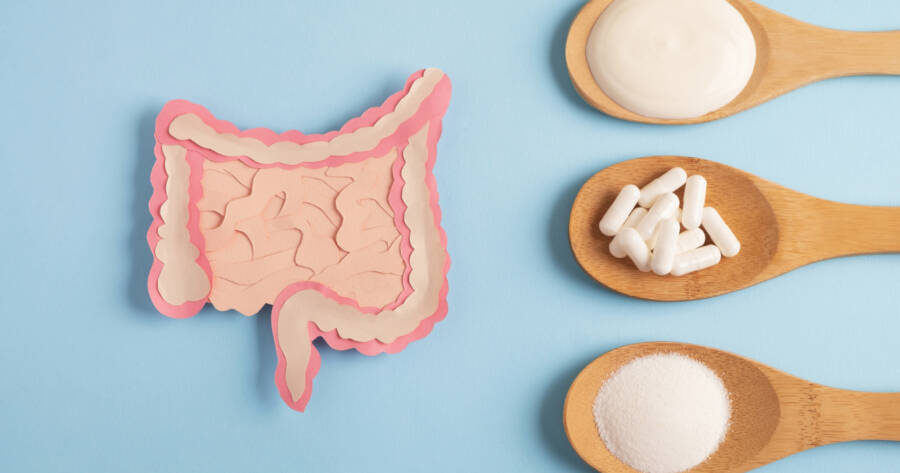The universe inside our gut—flora, bacteria, and all—is an intricate system affecting more than just our digestive processes. And, with a search online, you can browse the top probiotic supplements for gut health.
The health and wellness spotlight has turned to probiotics, those beneficial bacteria which promise an array of health benefits. As the popularity of probiotic supplements surges, discerning the genuine from the gimmicky becomes crucial.
Understanding Probiotics: More Than Just Gut Friends
At their core, probiotics are living microorganisms, primarily bacteria, believed to provide numerous health benefits when consumed in adequate amounts. Though often associated primarily with digestion, their impact extends to the immune system, mental health, nutrient absorption, and more. However, it’s not just about taking any probiotic supplement; the type and strain matter considerably.
The Battle Within: Bifidobacterium and Lactobacillus
Bifidobacterium and Lactobacillus are the two main families of bacteria found in many probiotic supplements, each boasting its unique set of health benefits.
Bifidobacterium primarily resides in the colon and is essential for digesting dietary fiber and other complex carbs. It also plays a role in combatting harmful bacteria and supporting the immune system. On the other hand, Lactobacillus usually inhabits the small intestine and aids in breaking down sugars into lactic acid, which supports an acidic environment that deters harmful bacteria.
While both are crucial, understanding your specific health needs can guide you towards the right balance of these bacteria in your chosen supplement.
The Right Strain for Pain: Addressing Specific Concerns
Different strains of probiotics cater to various health concerns. Lactobacillus acidophilus, for instance, can help with lactose digestion and has been linked to reducing the risk of certain infections. Bifidobacterium bifidum is known for its efficacy in easing IBS symptoms and other digestive disorders.
Before jumping on the probiotic bandwagon, it’s crucial to pinpoint your health objectives. Whether it’s bolstering your immunity, aiding digestion, or managing a specific condition, select the probiotic strain that aligns with your goals.
Beyond the Pill: Food Sources of Probiotics
Supplements aren’t the only gateway to beneficial bacteria. Foods like yogurt, kefir, sauerkraut, and kimchi are naturally rich in probiotics. Incorporating these into your diet can provide a dual benefit: not only do they introduce beneficial bacteria, but they also contain other nutrients and compounds beneficial to overall health. However, it’s important to choose unpasteurized versions as the pasteurization process can kill many of the beneficial bacteria.
Potential Pitfalls: Not All Supplements Are Created Equal
The market is flooded with probiotic supplements, and not all live up to their claims. It’s paramount to choose products that have been tested for potency, purity, and viability.
This ensures that the bacteria are alive and can confer their health benefits when consumed. It’s also wise to check for third-party certifications or lab tests that verify the product’s claims.
The Prebiotic Connection: Feeding the Good Bacteria
While probiotics steal the limelight, prebiotics play an unsung yet crucial role in gut health. Prebiotics are essentially the food for our beneficial bacteria.
Found in foods like garlic, onions, asparagus, and bananas, they fuel the growth and activity of our gut’s good bacteria. Consuming a combination of probiotics and prebiotics—often termed ‘synbiotics’—can create a harmonious gut environment, where beneficial bacteria thrive and flourish.
Gut-Brain Axis: The Mental Health Link
Emerging research suggests a profound connection between our gut and brain. This bi-directional communication, termed the “gut-brain axis,” has been linked to mood, behavior, and even mental health disorders.
Probiotics, particularly strains like Lactobacillus helveticus and Bifidobacterium longum, have shown promise in influencing this axis, potentially alleviating symptoms of anxiety and depression. Understanding this link can pave the way for holistic approaches to mental well-being, emphasizing the importance of gut health.
Tailoring Probiotics: Age, Gender, and Lifestyle Factors
The ideal probiotic regimen isn’t one-size-fits-all. Age, gender, diet, and even stress levels can influence the type and quantity of probiotics one might need. For instance, the gut flora of seniors differs considerably from younger individuals.
Similarly, the needs of a pregnant woman might vary from her non-pregnant counterpart. Recognizing these nuances can help tailor a more effective and personalized probiotic strategy.
Interactions and Contraindications: When Probiotics Meet Medication
Like any supplement, probiotics can interact with medications or other supplements. Some antibiotics, for instance, might reduce the efficacy of probiotic supplements. Conversely, certain probiotics might enhance the effects of medications like immunosuppressants. Being aware of these interactions and consulting with a healthcare professional before starting any probiotic regimen is imperative to ensure safety and efficacy.
Learn More Today
Navigating the world of probiotics can feel like navigating a labyrinth. But with the right knowledge and tools, you can select a supplement or dietary source that truly supports your gut health and overall well-being.
Remember, while we’ve unveiled some top insights, the world of probiotics is vast and continually evolving. So, keep that curiosity alive and continue searching online to unearth more gems of information about this fascinating facet of health.
